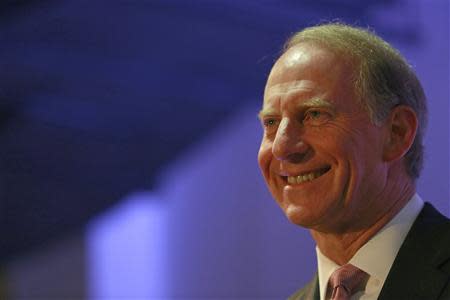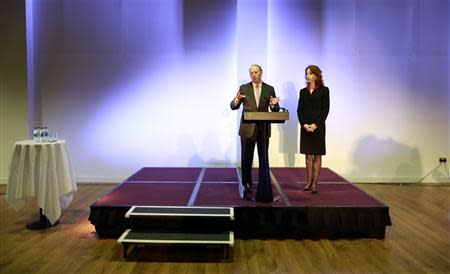Northern Ireland parties start talks to reduce tensions
By Ian Graham BELFAST (Reuters) - A U.S. diplomat started talks with Northern Ireland's political parties on Tuesday, aiming to generate proposals to reduce tensions in the province by the end of the year. Belfast is still divided between pro-British Protestants and Catholics who generally favor unification with Ireland, despite a 1998 peace and power-sharing deal that put an end to the worst of the sectarian violence in the province. Richard Haass, the president of the U.S. Council on Foreign Relations think-tank and a former adviser to the President George W. Bush on Northern Ireland, is chairing all-party talks which aim to stop regular protests and riots. They will address the use of flags, traditional Protestant parades - which often spark violence when they pass close to Catholic areas - and the province's divisive history. "There are obviously unresolved issues, unresolved tensions or you would not have had the violence you have had this summer, you would not have had these lingering and persistent differences," Haass told reporters in Belfast. Unrest has flared all year over issues like the use of flags on public buildings, the refusal of a permit for a Protestant parade and commemoration of the use of internment without trial. "These are crucially important talks and the issues like the past, flags and parades are matters we have failed to reach agreement on," said Martin McGuinness, Northern Ireland's deputy first minister. "These have all played out to our detriment in the recent past." Police say more than 28 million pounds ($45 million) has been spent on security around parades and protests since December. During Northern Ireland's sectarian conflict that began in the late 1960s, more than 3,600 people died including more than 1,000 members of the British security forces. ($1 = 0.6275 British pounds) (Editing by Sam Cage and Robin Pomeroy)



